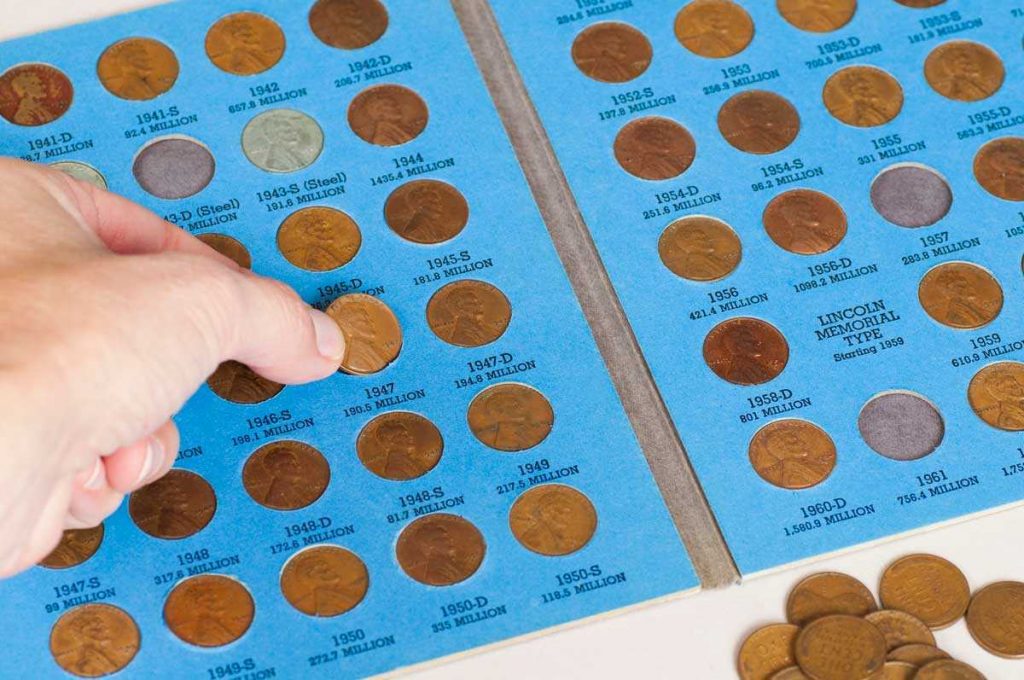Ad Blocker Detected
Our website is made possible by displaying online advertisements to our visitors. Please consider supporting us by disabling your ad blocker.

Coin collecting is a fun hobby for most. Coin collecting, also called numismatics, is one of the oldest hobbies in the world. There are several kinds of collectors. A lot are casual collectors, and there are a few career professionals. Their levels of dedication vary, but they all have a passion for collecting coins. All collectors want to know their coin’s value. Some only want to know this out of curiosity. But most collectors have an interest in currencies for investment purposes. Figuring out what type of coin you have is the first step in finding out the value of your coin. The condition is also as crucial as its type. You can then reference this information against online and print value lists. Working with a numismatics organization or a professional appraiser is better. They will let you get an accurate value for your specific coin.
There are two methods you can use to find the value of old coins. You can research on your own, or you can work with an appraiser or organization.
Research on your own
- Pin down the coin’s origin and date.
You have to know what coin you have to determine its specific value. Modern coins have their date of issue printed on the front or back of the coin itself. You can also find the country of origin there.
Some coins have information printed on a foreign language. You can consult a world coin reference book or website if you cannot understand what is on it. These have images to help you match your coin. These guides can also help you determine how old coins are if they do not have a printed date. You may be unable to find the coin in a book or website due to lack of identifiers. You can try to determine a general area and broaden your search.
- Determine the condition by inspecting the coin.
The condition of the coin affects the coin value very much. Higher quality coins have more value than ones with blemishes or dirt. Uncirculated coins are usually more expensive. Unused coins are often called uncirculated. The condition of a coin influences the coin rating. Mint is the term used for those in perfect condition. Poor refers to the state of those that are dirty or damaged. Never attempt to clean a dirty coin. Cleaning it the wrong way will make the value lower. Take it to an expert if you want to clean it without damaging it.
- Check online for coin value lists.
There are a lot of websites that offer information for free. Some have a list of values for some coins. You can also check with a professional organization like the Professional Numismatics Guild. Use their website to look up your currency according to its date and origin. You may be able to find its current value this way. Do not expect your coin to have the exact value as what you find online. The amount you can sell your currency for depends on several factors. The condition and current demand are some of the most critical factors. Use the value you find online as a ballpark figure only.
- Consult a coin value book.

You can also consult a reference book if you cannot find the value of your coin online. Look at the Standard Catalog of World Coins and the Guide Book of United State Coins. They may list several coin values.
- Book value: This is the generally accepted value of the coin.
- Buy value: This is what a dealer would pay to buy the coin from you.
- Retail value: This is what a dealer would accept from a customer who wants to buy the coin.
- Wholesale value: This is how much a dealer might sell a coin to another dealer. This value is the standard value when the dealer sells several coins together.
- Consider other individual factors.
The value of coins usually goes up and down because of several changing factors. The coin value may go up when a lot of people want to buy a specific type of coin. Rare or exceptional coins are often more valuable than common ones. Commemorative or special issue coins are also often precious. You have to consider these factors when you calculate the coin values. A type of currency that is not rare but is in mint condition may have a higher value than the average value. It may be truer when others of that type are not in mint condition.
Working with an appraiser
- Join a numismatics group.
Numismatics is the study or collection of currency. Joining a professional group devoted to numismatics has a lot of benefits. It may be more helpful if you have lots of coins that you want to appraise or if you work with coins often. These groups share price lists and other exclusive information with their members. That information can help you determine the value of your coins.
- Look for a professional coin appraiser.
You can have the most accurate and up-to-date value of your coin when your coin gets an official appraisal. The appraiser will base their assessment on their expert opinion. They will take into account several factors, such as the condition of the coin.
- Go to a numismatics trade show.
Regular conventions where sellers display coins for interested buyers are great to attend. Dealers sometimes buy coins from attendees, too. You can use this opportunity to determine your coin’s buy value. You can even talk to some dealers and find out if they have any interest in your currency.
An old coin is not always valuable. Do your research and follow the above tips. Be careful of fraudsters who will offer you less than what you can get for your coin.



